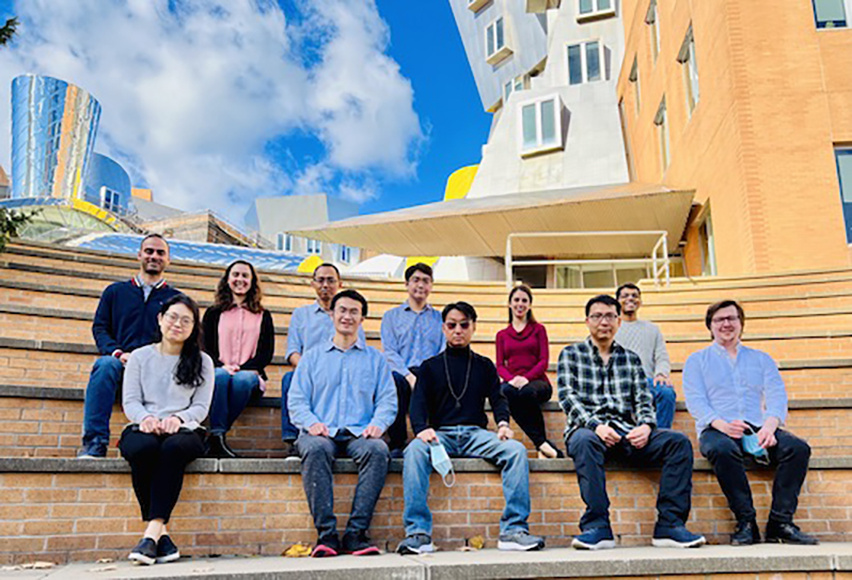
MIT Koch Institute
November 5, 2021
The Marble Center for Cancer Nanomedicine and the MIT Center for Precision Cancer Medicine are pleased to announce the 2021-2022 class of Convergence Scholars. The Convergence Scholars Program (CSP) fosters the development of a new type of scientist—one who understands a broad range of disciplinary approaches, is able to ask creative questions, and is trained to answer those questions with diverse tools. By preparing postdocs for life beyond the bench, the CSP helps young scientists hone the skills they need to succeed within and beyond the academic setting.
CSP Scholars receive training, mentors, insights, and inroads into careers in academia, industry, health care, the policy arena, and federal research or regulatory agencies. Building upon on strong partnerships between the Koch Institute, the MIT community, and industry and clinical partners around greater Boston, the Scholars gain critical knowledge about the clinical development life cycle, policy and regulation, technology transfer, education and outreach, business and finance, and clinical practice. The Scholars participate in professional development workshops to enhance their communication, science management, and science leadership skills, and also receive a stipend for supplemental professional activities and travel. Since its inception in 2017, the CSP has offered postdoctoral fellows the opportunity to explore their futures more deeply and thoughtfully, and as a result has launched many careers in academia and industry.
The Convergence Scholars for this academic year are:
- Ryuhjin (Angela) Ahn, White Lab: Using phosphoproteomics, systems and molecular biology approaches, Ryuhjin seeks to understand the balance between pro- and anti-tumorigenic immune responses that are regulated by the interplay of microglia and brain cancer.
- Chun-Chin Chen, Hemann Lab: Chun-Chin studies the role of genome instability in blood cancer, focusing in particular on the leukemia susceptibility in children with Down syndrome.
- Jung-Kuei (Johny) Chen, Yaffe Lab: Johny’s research aims to decipher the molecular mechanism and signaling in DNA/RNA damage responses, with the goal of identifying diagnostic and therapeutic targets for cancer treatment.
- Tamara Dacoba, Hammond Lab: Tamara’s research is focused on the development of layer-by-layer nanoparticles to improve hematopoietic cell targeting for cancer therapy.
- Akash Gupta, Langer Lab: Akash’s research aims to develop novel materials for the delivery of nucleic acid therapeutics for cancer immunotherapy.
- Yanpu He, Belcher Lab: Yanpu is exploring the survival benefit of early monitoring and early treatment interventions in pre-clinical cancer models.
- Matthew Henley, Koehler Lab: Matthew is interested in the development of proteolysis targeting chimaeras (PROTACs) for the "undruggable" transcription factor PAX3-FOXO1 in rhabdomyosarcoma, a devastating childhood cancer with poor survival rates.
- Sasan Jalili, Irvine Lab: Sasan is working on developing novel microneedle patches for sampling interstitial fluid and cells from the skin as a diagnostic for detecting immune responses to cutaneous cancer and other infectious and autoimmune diseases.
- Theresa Raimondo, Anderson Lab: Theresa’s research focuses on the development of novel lipid nanoparticle-siRNA therapeutics for a treatment of cancer that works by silencing immune checkpoints in tumors.
- Edward Tan, Bhatia Lab: Edward’s research leverages the synthetic biomarker technology developed in the Bhatia lab for early cancer detection in low-resource settings, as well as for the development of protease-sensitive nanoparticles in the context of drug delivery.
- Jason Yu, Manalis Lab: In his research, Jason seeks to understand how biophysical properties change immune cell activation and differentiation in tumors.